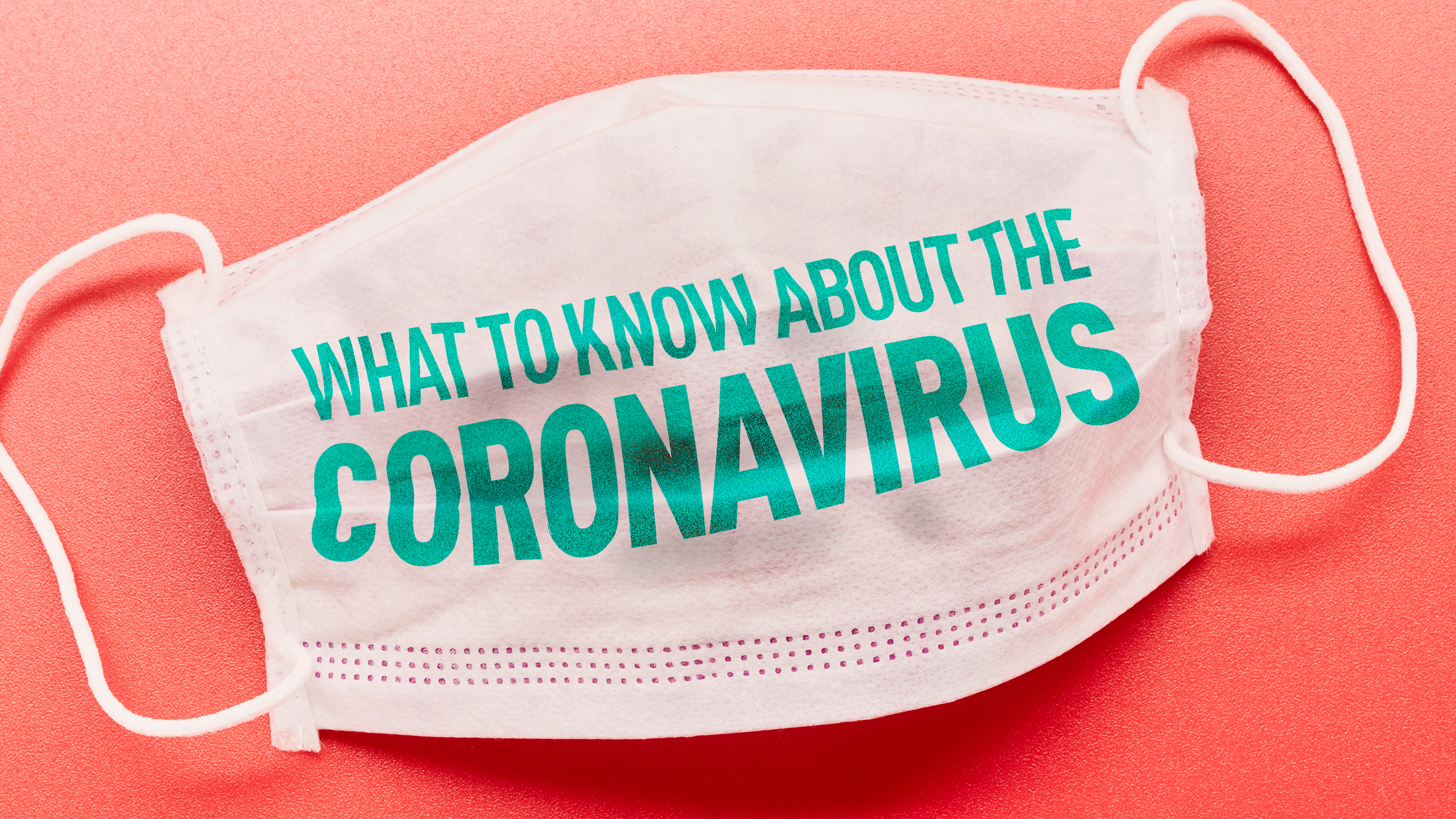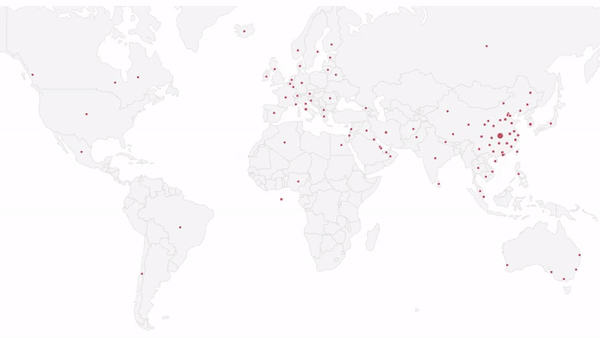
KEY POINTS
- Giant employers of lower-wage workers like McDonald’s and Starbucks spent and borrowed money for stock buybacks and dividends.
- Now companies are trying to tap credit to manage cash, avoid layoffs. The tax cuts of 2017 are also now being scrutinized.
- Labor unions and experts say all that shareholder money could have gone to worker raises and to shore up the balance sheet during the bull market to better prepare for a financial downturn.
Kitchen-table finance begins with one simple rule: Have several months’ worth of expenses on hand, in cash, in case something unexpectedly goes wrong.
Some of America’s biggest employers are beginning to discover the truth of this maxim as the coronavirus crisis catches them short of cash just as business crashes. Together, the restaurant, leisure and hospitality, and airline industries account for about 17 million U.S. jobs.
And there’s another reason why more workers are likely to get laid off if the crisis persists: Their employers are short of cash often because of stock buybacks.
This complicates the case for developing plans from the Trump administration to offer some form of federal bailouts to industries like casinos, airlines and maybe even restaurants hit hard by the sudden loss of business as states and municipalities order non-essential businesses to close or curtail their operations.
"This is more of the exaltation of shareholders over sensible business planning,″ said Judy Conti, government affairs director of the left-leaning National Employment Law Project. "It’s yet another indicator of the failure of the [2017] tax bill. It didn’t encourage higher wages or new jobs, but more greedy practices."
No 'Blank Check' Bailouts
In fact, lawmakers and airline unions came out on Tuesday to say there should be no “blank check” given to airlines who spent on stock buybacks.
Instead of having a rainy-day fund on hand, employers in the affected industries are trying to get by with as little as one to two months’ revenue on hand, in the form of cash or short-term securities. In this, many employers in hospitality and restaurants are the opposite of tech giants like Microsoft and Apple, whose giant cash positions are available to help the companies ride out the storm and retain more of their workers.
"You have two issues: How much cash do they have, and how big a credit line?" said Charles Elson, a corporate-governance expert at the University of Delaware in Newark. "There’s no standard number for cash on hand. Credit lines aren’t typically used for salaries, but in an exigent situation you gotta do what you gotta do."
Take McDonald’s. With $21.1 billion in revenue last year, it ended 2019 with only $898.5 million in cash on its balance sheet, a little more than two weeks’ worth of sales. Considering that the fast-food chain, which owns more than 2,600 stores, franchises 36,000 more and employs 205,000 people, generated $5.7 billion in free cash flow last year, it could have as much cash as it wants. Instead, McDonalds’ bought back $4.9 billion worth of stock in 2019 and paid another $3.6 billion for its dividend, almost exactly the $3.24 billion the company borrowed last year.
"As McDonalds goes, so goes the fast-food industry," Conti said. “They were in a position to raise wages and set an example for other companies to follow. Instead of that, they went into debt to further enrich shareholders and executives.”
McDonald’s announced on Tuesday it was unable to provide financial guidance because of the uncertainty related to the coronavirus and would work with franchisees on rent deferrals. In its fourth-quarter earnings call, which a spokesperson referred CNBC questions to on Monday, chief financial officer Kevin Ozan had reiterated the company’s goal of returning all of its free cash flow to shareholders through dividends and buybacks, while adding $1 billion a year to the company’s $34.1 billion in debt. McDonald’s also has a $3.5 billion credit facility that could help it ride out the sudden bust, according to the company’s securities filings.
McDonald’s disclosed over 200,000 employees at the time of its last annual report (2018), including company-owned and operated restaurants, but 90% of its locations are franchised.
The story isn’t much different at Starbucks, which employed 346,000 people as of Dec. 31 but is reduced to a takeout business in U.S. locations. With $26.5 billion in sales last year, it has $2.76 billion in cash, or about six weeks’ expenses. It made $3.24 billion in free cash flow, while spending $10.2 billion on buybacks and another $1.76 billion on dividends, giving shares a 2.6% yield at a stock price that’s down about 35% this year.
Starbucks employed approximately 346,000 people, as of September 29, 2019. In the U.S., it has over 200,000 employees in company-operated stores. Starbucks is providing up to 14 days of “catastrophe pay” for all workers who have been exposed to the virus. McDonald’s has extended paid leave benefits for some workers at corporate-owned restaurants.
Yum Foods, which owns the KFC chicken chain, also returned more money to shareholders than it generated. But it increased its cash position by $300 million during the year, to $743 million, by shrinking its buybacks by about two-thirds. Darden Restaurants also built up cash in 2019 while buying back only $207 million of shares.
Casinos
Some big casino companies are also in a cash shortage of their own making. Las Vegas Sands, controlled by Sheldon Adelson, whom ProPublica called "Trump’s biggest patron" in 2018, paid out more than its 2019 cash flow as dividends alone, and reduced a cash position it had buttressed in 2018 by more than $600 million. But it still has more than $4 billion on hand. Wynn Resorts paid $566.5 million in dividends despite negative free cash flow, it has cash equal to at least five months’ expenses. Wynn on Tuesday asked Congress for emergency aid.
Some companies short on cash thanks to the business interruption got that way because they spent 2019 reinvesting profits in their business. That’s the story at both of the world’s two largest cruise lines, Carnival Corp and Royal Caribbean.
Both made plenty of profit and generated billions in operating cash flow, $3.72 billion at Royal Caribbean and $5.48 billion at Carnival. But they spent that money, mostly, on new or upgraded ships. Capital spending was $5.43 billion at Carnival and $3.02 billion at Royal Caribbean.
But both found the money to buy back at least some shares: Carnival spent $600 million on buybacks and $1.39 billion on its dividend, which it financed, indirectly, by issuing $1.4 billion in new debt. Royal Caribbean spent more than $700 million, most of it on dividends.
Carnival said Monday that it is tapping the "vast majority" of its $3 billion credit line to bolster its cash position.
Companies are rushing back into the debt market at the first available opportunity after it all but shut down last week. On Tuesday, Verizon, Exxon Mobil, Pepsi and Bank of America were all expected to issue bonds.
Airlines are a mixed bag. They’re vulnerable to bankruptcy as soon as May in some cases thanks to high, mostly fixed costs for planes and workers, so the drop in business this month threatens to wipe out the profitability they enjoyed in 2019.
United Airlines Holdings has been trying to build up its cash position, paying no dividends last year, and ending the year with $4.94 billion in cash -- still only about a month’s worth of expenses, but up $1 billion from a year earlier. It spent more than half of its 2019 operating cash flow on capital spending, mostly, new or upgraded planes and bought back $1.65 billion of stock.
It said this week all corporate officers were taking a 50% salary cut as its March revenue decreased by $1.5 billion. It said talks with unions about payroll reduction began over the weekend.
Delta had less than a month’s worth of expenses in cash as of Dec. 31, and spent about 60% of its $3.49 billion in free cash flow on buybacks and $980 million in dividends. But it also invested most of its $8.43 billion in operating cash flow back into its business.
Southwest has about three months’ revenue in cash, and only spent two-thirds of its 2019 free cash flow on buybacks, after investing $1.03 billion in its business.
"In just the last few days, the impact of the coronavirus has really hit home and disrupted the daily routines of hundreds of millions of people in the United States and around the world," United CEO Oscar Munoz and President Scott Kirby wrote in a letter Sunday announcing a 50% cut in flights through May and the 50% cut in compensation for company officers. "We took early, aggressive action because we have been determined to do everything possible to avoid painful steps that affect your paycheck. But, based on the severity of the situation, that no longer appears realistic."
CFRA airline analyst Colin Scarola said some airlines, like Delta and Southwest, have notably conservative balance sheets that make stock buybacks more appropriate.
"They’ve got plenty of liquidity for a few months; they’re being opportunistic [in seeking government help]," Scarola said. "They’re not going to be doing any share repurchases this year. They’re going to spend less on capex. They’re going to talk to Airbus and Boeing about stretching out deliveries."
This story first appeared on CNBC.com. More from CNBC:



